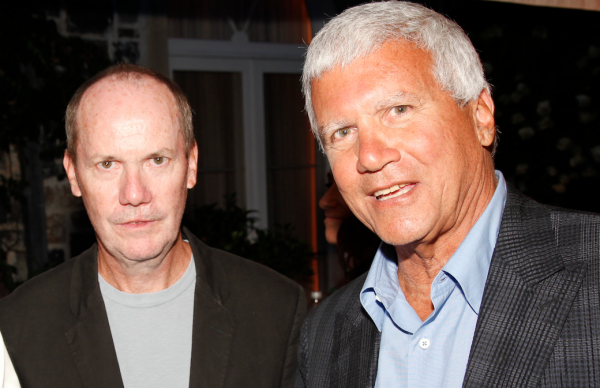
Superstar appropriation artist Richard Prince has left Gagosian Gallery.
An anonymous source close to the artist’s studio confirmed that Prince has broken ties with the world-renowned gallery, which began in Los Angeles in 1980, and has been expanding ever since. artnet News reached out to Gagosian Gallery and the artist’s studio, but did not receive an immediate response.
Since joining the gallery in 2005, Prince has had nearly a dozen solo shows at its various international locations, and been part of countless other Gagosian group shows.
artnet News’ source said increasing tension arose between the artist and the gallery over issues of representation. Though Prince reportedly was signed to the Gagosian Gallery exclusively, he has had numerous other solo shows at other blue-chip venues in the past five years alone, as detailed on his website at spaces including his former gallery Barbara Gladstone, Blum & Poe, Luxembourg & Dayan, Nahmad Contemporary, Almine Rech, Skarstedt, and Sadie Coles, London.
This appears to be bad news for Gagosian, since Prince is a market force to be reckoned with. His “Nurse” and “Joke” series paintings often sell for millions at auction. The current auction record of $9.7 million was set at Christie’s last month, and the artnet Price Database lists nine paintings that have sold for more than $5 million each, and nearly 50 paintings for more than $2 million each.
“It’s not that money has nothing to do with it…,” Prince cheekily told Damien Hirst in a 2009 interview on ASX. “Money means you can buy a better pencil sharpener…”
Prince has frequently sparked controversy over his appropriation practice, including a string of copyright lawsuits in which Larry Gagosian personally, and the Gagosian Gallery business, have been drawn in to as defendants. In the most high-profile and drawn out one to date, it was photographer Patrick Cariou who sued the artist and the gallery over use of his distinctive Rastafarian imagery, that Prince then used in his highly successful “Canal Zone” paintings, which were shown at Gagosian Gallery in 2011.
Joshua Schiller of Boies Schiller represented Prince; the notable firm previously represented the Warhol Foundation against a class action suit, and more recently defended art dealer Ann Freedman in connection with the massive Knoedler forgery scandal. The Cariou v. Prince case was eventually settled in 2014.
More recently, suits against Prince and the gallery have come from well known photographer Donald Graham, once again over use of a Rastafarian image on the blown-up Instagram photo series. Joshua Schiller has appeared again for Prince in that case, and Gagosian is represented by Dontzin Nagy & Fleissig LLP.
And last week, another photographer, Dennis Morris, who trailed the Sex Pistols on tour in the 1970s, sued Prince and Gagosian for use of his image of Sid Vicious also in the blown-up Instagram series and as part of a show centered on Jackson Pollock that was held in Eastern Long Island in 2011.
Another source who was also aware of the split cautioned against reading too much into the often fickle artist-dealer relationship. After all, another art star, Hirst, who “left” Gagosian a few years back, recently showed his greatest hits at its Frieze New York booth.